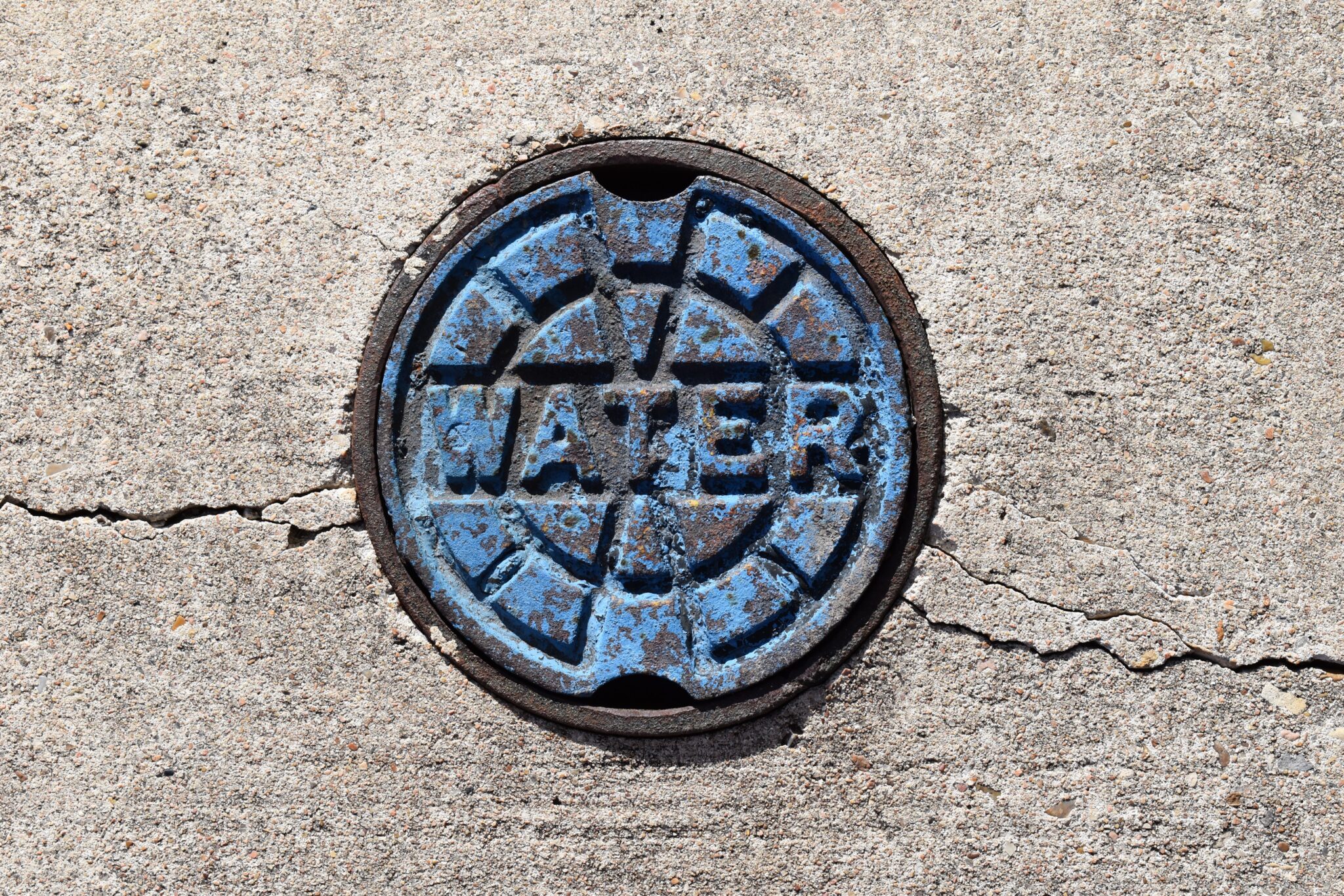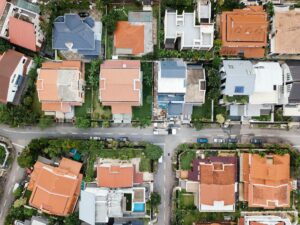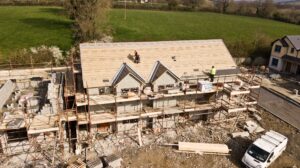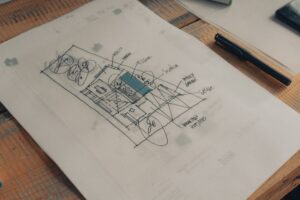When Do You Need an Industrial Wastewater Permit in Los Angeles?
In the Los Angeles Municipal Code, Section 64.30 contains the Industrial Waste Control Ordinance. This ordinance states that all industrial facilities and any commercial facilities that aim to discharge wastewater to the local wastewater collection and treatment facility must first apply for and receive an industrial wastewater permit.
Once you obtain this permit, your facility can discharge wastewater without needing to worry about being fined or penalized. This permit is designed to keep the sewer collection and treatment facility protected while also making sure that toxic wastewater constituents don’t pass through to recovered bio-solids and receiving waters.
Industrial wastewater commonly contains high levels of heavy metals, oil, grease, toxic chemicals, and corrosive chemicals, which is why it’s highly regulated by the city of LA. This article offers a more comprehensive look at when you should seek an industrial wastewater permit if your company operates out of Los Angeles.

When is an Industrial Wastewater Permit Required?
Industrial wastewater refers to any water that contains waste that isn’t part of domestic wastewater. In the event that wastewater is produced from a household operation but performed at a commercial establishment for commercial reasons, it’s considered to be industrial wastewater.
If you’re wondering about the need to obtain an industrial wastewater permit, you should contact the Industrial Waste Management Division. If you need a plumbing permit or sewer connection permit, you should apply for one at the Department of Building and Safety.
How Do You Obtain an Industrial Wastewater Permit?
If you want to apply for an industrial wastewater permit, you’ll need to complete an application and pay the application fee. Once you send in an application, it will be reviewed and further processed by the staff at IWMD, after which discharge monitoring, limitations, and reporting requirements will be established.
After your application has been submitted and process, an industrial waste inspector will:
- Complete a thorough inspection of your facility
- Make sure that all of the information you included in your permit application is accurate
- Identify the wastewater conveyance methods, wastewater generating processes, and treatment systems that are used in your facility
This permit will detail the responsibilities and conditions that an industrial user must abide by when discharging industrial wastewater to the local sewer system. Full permitting requirements are based on the volume and type of wastewater that’s being discharged. For instance, larger facilities may be tasked with monitoring and sampling the wastewater, after which reports would likely need to be submitted to the IWMD.
Industrial users in Los Angeles are required to adhere to two discharge limitations, which include federal limits and local limits. The local limits are designed to protect the treatment plants in Los Angeles. These limits apply to every industry that operates in the city. In comparison, federal limits solely apply to facilities that perform federally regulated processes in the U.S. These limits might be stricter than local limits.
It’s highly recommended that you seek help from our permit expediter at Crest Real Estate. Without an expediter by your side, the permit application and approval process might take weeks or months, which costs you time and money. At Crest Real Estate, we’ll also make sure that your application doesn’t contain any mistakes. Our goal is to expedite this process for you.

What Are Pretreatment Programs?
Wastewater pretreatment programs are designed to get rid of any pollutants or contaminants in the water that could damage the equipment that’s necessary for the wastewater treatment process. There are two types of pretreatment programs used for industrial applications, which include pretreatment programs for significant industrial users and pretreatment programs for local industrial users.
Pretreatment Programs for Significant Industrial Users
If a business receives the Significant Industrial User (SIU) classification, they must abide by stricter requirements when compared to other business types. A company can receive this classification if they meet at least one of the following criteria:
- Discharges at least 25,000 gallons of process wastewater each day
- Subject to the Federal Categorical Pretreatment Standards
- Deemed to have the potential to adversely affect operations of local wastewater treatment plants
Pretreatment Programs for Local Industrial Users
Any permitted facility that doesn’t receive the SIU classification is considered a Local Industrial User (LIU). These facilities are subject to LA’s local limits and have less strict permit requirements. The types of facilities commonly classified as LIUs include:
- Laboratories
- Dental and medical offices
- Restaurants
- Automotive maintenance and repair shops
Who Does Not Need an Industrial Wastewater Permit?
There are certain facilities that likely don’t require an industrial wastewater permit, the primary of which include:
- Food service establishments that don’t generate oils, fats, and grease throughout food preparation processes
- Blow-down or bleed-off from evaporation condensers or cooling towers that have a capacity of lower than 25 tons
- Self-service laundries that have smaller washing machines with 20 pounds of max capacity
- Establishments that discharge less than 200 gallons of industrial wastewater discharge each day

Business & Industry FAQ
There are many frequently unanswered questions when it comes to industrial wastewater permits, many of which are answered below.
What Is Industrial Waste Management?
Industrial Waste Management is a smaller division that’s part of LA Sanitation. This division is tasked with regulating, monitoring, and controlling all industrial wastewater discharges that lead to the local wastewater collection and treatment unit.
What Is Industrial Wastewater?
Industrial wastewater is a type of water that has more waste in it than domestic wastewater. This form of wastewater is produced from commercial and manufacturing operations as well as household operations that are performed in commercial facilities.
Who Needs to Obtain an Industrial Wastewater Permit?
Industrial facilities and some commercial facilities must apply for a permit before they can discharge this wastewater. You can get in touch with IWMD to determine if you need one of these permits. Keep in mind that sewer connection permits, building permits, and plumbing permits are separate from industrial wastewater permits.
How Do I Apply for an Industrial Wastewater Permit?
If you’d like to apply for an industrial wastewater permit, you can submit an application with IWMD, which comes with a free of $616. When you need help with your application, you can reach IWMD at (323) 342-6200.
Is an Industrial Wastewater Permit Transferable?
You can’t transfer industrial wastewater permits from one person or company to another. If ownership in a business changes, the new owner will need to obtain a completely new permit.
Who Qualifies for an Exemption from an Industrial Wastewater Permit?
Industrial wastewater permits aren’t necessary for certain discharges to the LA sewer system. As touched upon previously, these discharges include:
- Blow-down or bleed-off from evaporation condensers, cooling towers, or similar recirculating water devices that have a rated capacity of less than 25 tons
- Discharges from businesses where the amount of industrial wastewater discharge is lower than 200 gallons each day
- Self-service laundries that have washing machines of around 20 pounds of maximum capacity
What Happens if There are Changes to Facility Operations?
IWMD needs to be notified if changes are being made to the process, flow, pretreatment, or operations in a facility. It’s possible that the permit will need to be amended because of the modification.
Will the Facility Be Inspected?
Standard facility sampling and inspections are performed by environmental compliance inspectors. These inspections are meant to ensure compliance with the city’s industrial waste control ordinance along with the individual permit requirements that each user must maintain.
How Much Is the Industrial Wastewater Permit Application Fee?
Every facility that’s required to apply for an industrial wastewater permit will need to pay a fee of $616 when submitting their application. This fee is put towards the cost that the city takes on for performing field visits, processing the permit application, and issuing the final permit.
Are There any Industrial Waste Fees?
There are a couple of fees that holders of an industrial wastewater permit should take into account. A yearly inspection and control fee must be paid by every business and industrial facility that discharges industrial waste. This fee pays for such services as inventory control, reporting, sampling, and inspection. An additional quality surcharge fee is required for any discharged wastewater that consists of organic solids and waste higher than domestic levels.
What Happens if There Is a Facility Violation?
In the event of a violation at your industrial facility, the IWMD can enforce certain actions, which extend from providing you with a Notice of Violation to suspending and revoking your industrial wastewater permit.
Industrial wastewater often contains highly toxic contaminants that shouldn’t be discharged into the environment. Before sending this wastewater to a local collection and treatment facility, make sure that you obtain an industrial wastewater permit, which will help you avoid fees and other penalties.

Jason Somers, President & Founder of Crest Real Estate
With over 15 years of professional experience in the Los Angeles luxury real estate market, Jason Somers has the background, judgement and track record to provide an unparalleled level of real estate services. His widespread knowledge helps clients identify and acquire income producing properties and value-ad development opportunities.
Learn more about Jason Somers or contact us.



